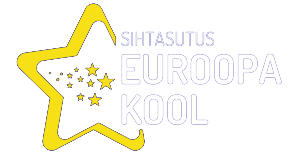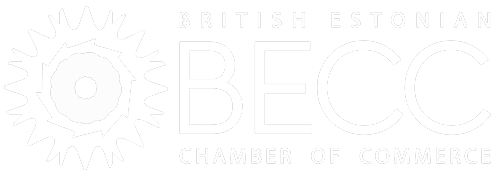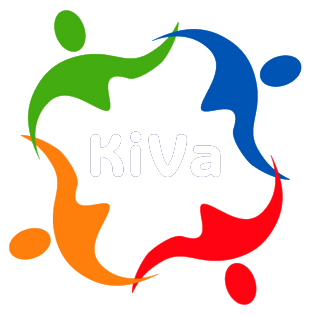Admission
Please read the information below before starting the application process.
The official admission period for the school year 2025/2026 is from 7th January to 9th March. For any questions regarding the admissions, please contact admission@est.edu.ee or +372 6311 331. Current students are not required to reapply.
Please read the following information carefully before applying!
Please make sure to read the Admission Policy before starting the application process.
The latest version of the Admission and Exclusion Policy was approved by the School Board and the Supervisory Board of Foundation Euroopa Kool on 20.12.2024
TES follows the curriculum of the European Schools that focuses also on multilingualism.
TES offers two language sections: English (all classes) and French (Nursery and Primary only).
The mother tongue/dominant language (L1) is compulsory from P1 to S7.
A second language (L2), either French, German, English (if not the first language) or Estonian (currently offered only in P1-P3) is compulsory from P1 to S7. Students’ L2 will become their language of instruction as of Secondary 3 for certain subjects.
A third language (L3) is compulsory from S1 to S5 (optional in S6 and S7).
At the start of Secondary 1, students must have A2 level competency in their L2.
Before applying, please familiarise yourself with the expected language requirement levels at the end of each sub-cycle here:

The school reserves the right to carry out language tests for Language 1, Language 2, and Language 3 to evaluate students’ proficiency levels and ensure they meet the required language standards.
Application fee of 200 euros is payable on application to the school and is non-refundable.
Once the completed application has been received by TES, the parents or a legal representative will be informed in writing and a statement for the required application fee fee in the amount of 200 euros will be included. The application fee does not apply to the children of employees of EU institutions and agencies. Application fee is a one-time, non-refundable fee. The application fee is to be paid by bank transfer or credit card payment. Cash payments are not accepted.
Payment of the application fee does not guarantee acceptance into the school.
Tallinn European School annual tuition fees for the school year 2025/2026:
- Nursery: 4,390.00 euros
- Primary: 5,130.00 euros
- Secondary: 6,280.00 euros
The tuition fee would be paid as monthly payments, please confirm when admitted if one yearly payment is needed (and paid by the employer, etc.), or if any other preferences.
If at the end of the school year, the tuition fee has been only partially paid, or remains unpaid, the pupil(s) of the families concerned will be removed from the school list.
Please take note that the costs of the following facilities are not included:
- Canteen
- Extracurricular activities
- Aftercare
- Transport
- Field trips and study visits
- Study materials
Tallinn European School is entitled to grant tuition fee reductions in the following cases:
- Family-based Reduction: more than one child of the same family is studying at Tallinn European School.
- Employee’s Reduction: the parent or legal representative of the pupil studying at Tallinn European School works at TES (teachers and other staff members) with a minimum of 0,6 workload.
More information and applications for tuition fee reductions
- Account holder/Beneficiary: Rahandusministeerium (The Ministry of Finance)
- Bank account numbers:
- SEB Pank EE891010220034796011 (EEUHEE2X)
- Swedbank EE932200221023778606 (HABAEE2X)
- LHV Pank EE777700771003813400 (LHVBEE22)
- Luminor Bank EE701700017001577198 (RIKOEE22)
- Reference number on the invoice.
- Explanation: Tallinn European School tuition fee, Invoice Number, Name of the Pupil.
TES has two enrolment categories
Category I: Children of the employees of the European Union institutions and agencies.
Study places are guaranteed at any time during the school year
Category II: Children of foreigners living and working in Estonia if the children cannot study in their mother tongue/dominant language (L1) in a local state or private school.
Enrolment under Category II is subject to the availability of the study places.
Under Category II, TES primarily enrolls:
- Children of TES teachers and employees, if the children cannot study in their L1 in a local state or private school
- Children of EU citizens living and working in Estonia, if the children cannot study in their L1 in a local state or private school
- Priority is given to the children of the members of the EU diplomatic missions in Tallinn
- Children of non-EU citizens living and working in Estonia, if they cannot study in their L1 in a local state or private school
- Priority is given to children who have previously studied in one of the section languages of TES (English or French)
- Children who could study in their L1 in a local state of private school, but who have studied previously for at least 2 years in a European School abroad at Primary or Secondary level
- Siblings of previously enrolled TES pupils under the aforementioned conditions
The application and documents are to be submitted through the online admission application form of our Student Information Management System, MySchool. First, we ask you to create an account in the system, thereafter applications can be filled out and submitted.
Any personal information provided during the admission process will be collected and retained according to the Principles of Processing of Personal Data.
If we are unable to provide a study place, all accounts and shared data will be deleted shortly before the beginning of the next admission period in January 2025.
What kind of school is Tallinn European School?
The European Schools came into being in 1953 and were established to promote the mobility of European officials. The education is designed to ensure that, after a stay abroad, children can enrol in a school in their home country without too many difficulties or can continue their school career at a European School in another European country. Therefore, such schools are established where European institutions and agencies are located. The European Agency for the operational management of large-scale IT systems in the area of freedom, security, and justice (eu-LISA) was established in Tallinn in 2014.
Tallinn European School offers an education that meets the pedagogical requirements laid down for the European Schools within the framework of the national school networks of the Member States. More information about the European schools can be found on the official website of the European Schools www.eursc.eu.
Tallinn European School provides general education in Nursery, Primary and Secondary level.
- Nursery (N1-N2; pupils’ age 4-6)
- Primary (P1-P5; pupils’ age 6-11)
- Secondary (S1-S7; pupils’ age 11-19)
What curriculum does the school follow?
The school follows the curriculum of the European Schools leading to the European Baccalaureate.
The curriculum focuses on different aspects of education:
- European dimension and Solidarity
- Cultural Diversity and Tolerance
- Multilingualism
- TES offers two language sections: English (all classes) and French (Nursery and Primary only).
- The mother tongue/dominant language (L1) is compulsory from P1 to S7.
- A second language (L2) is compulsory from P1 to S7. Some subjects are taught in Language 2, especially from S3 (Human sciences…).
- A third language (L3) is compulsory from S1 to S5 (optional in S6 and S7).
- In addition, it is possible to pick a fourth (L4) and fifth language (L5) (optional from S4 and S6 respectively).
- The target languages are the official languages of the EU.
What is the primary language that is used throughout the school?
- English is the primary language of communication and instructions in the English-speaking section and more generally in the school.
- French is the primary language of communication and instructions in the French-speaking section.
What are the languages offered?
- Besides the section languages (English and French), the following languages based on groups already open might be are offered as L1:English, Estonian, Finnish, French, German, Hungarian, Italian, Latvian, Lithuanian, Spanish and Romanian. In case there are less than five pupils at one level, lessons can be taught in combined classes.
- The L2 offered are English, German and French. Children with the L1 mentioned above have the language of their section as L2.
- The L3 offered are Spanish, German and French.
- Estonian is proposed as a host country language (HCL) in P3 to S3 and pupils are in level groups.
How much does it cost to send my child to Tallinn European School?
- Nursery: 4,390.00 euros per year
- Primary: 5,130.00 euros per year
- Secondary: 6,280.00 euros per year
(Tuition fees for the 2025-26 school year – the maximum increase rate is 10% per school year)
Please take note that the costs of the following facilities are not included: canteen, extracurricular activities, aftercare, transport, field trips and study visits, special education needs, study materials.
When can the parent make an application for their child to join TES?
The application period for the next school year starts every year in January. Applications can be submitted until the 8th March.
What can parents do if the family relocates outside of these application times and the parents wish to apply?
New applications will be considered only for the children of employees of European Union Agencies and Institutions. In case of vacancies, the school has the right to decide whether or not to accept applications outside the application period.
What does the application process involve?
- Completing the necessary enrolment documents and applicable documentation
- The family interview can be done via Skype. The interview is meant for getting a better understanding of the pupil’s previous education, the family’s routines and values, languages spoken at home etc.
- Trial day(s) – if needed or requested – to give the child an opportunity to spend time with the prospective class as well as estimate his/her current level in subjects and see how he/she would fit in.
- Language tests (if needed):
- Section language test (either English or French) starting from Primary 3.
- Test in Language 2 starting from Primary 3.
- Test in Language 3 starting from Secondary 2.
- Subject test: Mathematics (if required)
What are the expected language requirement levels at the end of each sub-cycle?
See the table below:

How does the school decide what is the correct class level of an applicant?
We are following the table of equivalences (please see here), drawn up in accordance with Article 11 of the Convention defining the Statute of the European Schools, determines the level at which pupils who have successfully completed a period of study in a state/public sector school or educational establishment recognized by one of the Contracting Parties and who holds a certificate to that effect from the educational authorities of that country are accepted. The table also sets out the conditions for recognition in each of those countries, pursuant to Article 5 of the Convention, of years of study successfully completed at the European School.
However, it is not only previous education that is evaluated when placing a pupil who is transferring. The age and emotional maturity are also taken into consideration.
Pupils are admitted to the school at the beginning of the school year in of the calendar year in which the child reaches the minimum age of the class requested:
| SCHOOL YEAR 2022-2023 | AGE | YEAR OF BIRTH |
| Nursery 1 | 4-5 | 2021 |
| Nursery 2 | 5-6 | 2020 |
| Primary 1 | 6-7 | 2019 |
| Primary 2 | 7-8 | 2018 |
| Primary 3 | 8-9 | 2017 |
| Primary 4 | 9-10 | 2016 |
| Primary 5 | 10-11 | 2015 |
| Secondary 1 | 11-12 | 2014 |
| Secondary 2 | 12-13 | 2013 |
| Secondary 3 | 13-14 | 2012 |
| Secondary 4 | 14-15 | 2011 |
| Secondary 5 | 15-16 | 2010 |
| Secondary 6 | 16-17 | 2009 |








